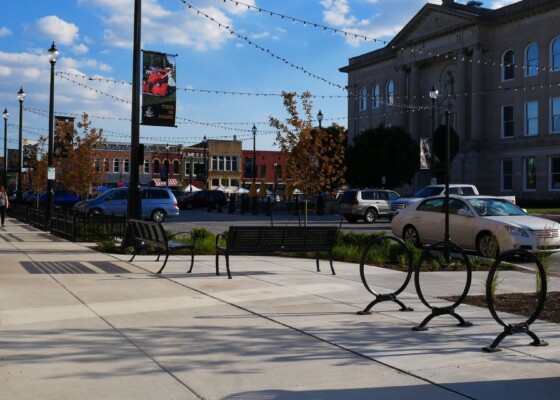Wishes for Indiana
June 29, 2016In 1816, most of the land that we now call Indiana was covered by old-growth forest—oaks, maples, hickories, walnuts, sycamores, elms and many other species. There were millions of acres…
In 1816, most of the land that we now call Indiana was covered by old-growth forest—oaks, maples, hickories, walnuts, sycamores, elms and many other species. There were millions of acres in wetlands, and hundreds of thousands of acres in prairies. Wildlife flourished. The rivers were pure and the air was clean. Native peoples had lived here for millennia without diminishing this natural abundance. Then over the past two hundred years, Hoosiers cut down the ancient forests, drained the wetlands, plowed up the prairies. Today, only scraps of that original plenty survive. Wild animals and plants have been drastically reduced in numbers and diversity. Our rivers and lakes are polluted. Our air is filled with heavy metals and other poisons. Our unchecked burning of fossil fuels—especially coal—has contributed to climate disruption.
My first wish for the future of Indiana is that we begin to undo that damage to our land and waters and air. Clean up the rivers and lakes. Restore prairies where they once flourished. Pull up drain tiles in low-lying terrain and allow wetlands to recover. Return marginal farmland to forest, and forbid logging in the oldest portions of our public forests. Protect endangered species. Clean up our air by shifting from a fossil-fuel-based economy to one based on renewable energy, especially solar and wind. We should do all of this not only to provide a healthier home for life, but also to provide Hoosiers a glimpse of what primordial Indiana looked like.
My second wish for the future of Indiana is that we restore a balance between the pursuit of private wealth and the protection of public wealth. We have starved our schools, libraries, parks, museums, courts, governments, police forces, and other shared goods while promoting the accumulation of money and power in private hands. Private wealth matters, of course; but our happiness and wellbeing depend as much or more on our common wealth.
Scott Russell Sanders is an acclaimed Hoosier environmental author. This post was written as part of a series celebrating the Next Indiana Bookshelf, a program of Indiana Humanities and the Indiana Center for the Book. Sanders’ book, “Earth Works: Selected Essays” is featured on the shelf. Views expressed in this blog post do not necessarily reflect those of Indiana Humanities or Indiana Center for the Book. Check the Indiana Humanities blog throughout 2016 for additional posts by authors detailing their vision for the Next Indiana.

